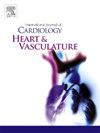评估心脏病学中启用人工智能的医学测试:最佳实践
IF 2.5
Q2 CARDIAC & CARDIOVASCULAR SYSTEMS
引用次数: 0
摘要
机器学习方法越来越多地应用于心血管研究。为了强调应用机器学习评估研究的机遇和挑战,我们使用了心脏电生理学的例子,这是一个以大量且经常不平衡的数据为特征的领域。我们为评估和展示监督机器学习研究提供建议和指导。我们建议适当的队列选择,将训练和测试数据严格分开,并将结果与没有机器学习的参考模型进行比较作为基本原则,以确保使用机器学习方法的研究质量。在报告机器学习时,我们进一步推荐具体的指标和图表,包括多通道时间序列或图像的模型。这篇最佳实践论文代表了一个可能的蓝图,可以帮助评估心脏电生理学等领域基于机器学习的医学测试。本文章由计算机程序翻译,如有差异,请以英文原文为准。

Evaluating artificial intelligence-enabled medical tests in cardiology: Best practice
Machine learning methods are increasingly used in cardiovascular research. In order to highlight opportunities and challenges of the evaluation of studies applying machine learning, we use examples from cardiac electrophysiology, a field characterized by large and often imbalanced amounts of data. We provide recommendations and guidance on evaluating and presenting supervised machine learning studies. We recommend proper cohort selection, keeping training and testing data strictly separate, and comparing results to a reference model without machine learning as basic principles to ensure the quality of studies using machine learning methods. We furthermore recommend specific metrics and plots when reporting on machine learning including on models for multi-channel time series or images. This Best Practice paper represents a possible blueprint to help evaluate machine learning-based medical tests in cardiac electrophysiology and beyond.
求助全文
通过发布文献求助,成功后即可免费获取论文全文。
去求助
来源期刊

IJC Heart and Vasculature
Medicine-Cardiology and Cardiovascular Medicine
CiteScore
4.90
自引率
10.30%
发文量
216
审稿时长
56 days
期刊介绍:
IJC Heart & Vasculature is an online-only, open-access journal dedicated to publishing original articles and reviews (also Editorials and Letters to the Editor) which report on structural and functional cardiovascular pathology, with an emphasis on imaging and disease pathophysiology. Articles must be authentic, educational, clinically relevant, and original in their content and scientific approach. IJC Heart & Vasculature requires the highest standards of scientific integrity in order to promote reliable, reproducible and verifiable research findings. All authors are advised to consult the Principles of Ethical Publishing in the International Journal of Cardiology before submitting a manuscript. Submission of a manuscript to this journal gives the publisher the right to publish that paper if it is accepted. Manuscripts may be edited to improve clarity and expression.
 求助内容:
求助内容: 应助结果提醒方式:
应助结果提醒方式:


